By Princess Gloria Adebajo-Fraser MFR.
The National Patriots Economic Desk
As Nigeria intensifies its economic diversification drive, a quiet revolution is emerging — one rooted not in oil or mining, but in faith, ethics, and global trade confidence. The newly introduced National Halal Economy Strategy positions Nigeria to enter a trillion-dollar global market, offering a transformative opportunity that blends morality, modernity, and money.
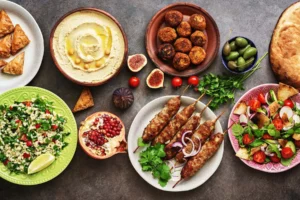
This is not a religious project. It is an economic modernization blueprint — a way to attract investment, boost exports, and rebuild national trust in food, finance, and manufacturing. In the same way that Islamic banking became a mainstream tool for development, Halal certification can now do the same for Nigeria’s trade and industrial growth.
The Global Halal Boom
Globally, the Halal economy is estimated at over $3.2 trillion annually, spanning food, pharmaceuticals, cosmetics, finance, fashion, logistics, and tourism.
According to the State of the Global Islamic Economy Report (2023), Muslim consumers alone spent $2.4 trillion on Halal-certified products and services, and that figure is projected to reach $3.5 trillion by 2030.
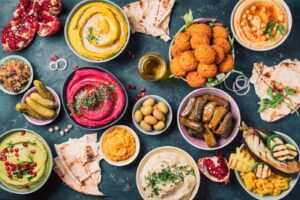
Countries like Malaysia, Indonesia, and the United Arab Emirates have built vast export and logistics systems on this foundation. Malaysia’s Halal industry already contributes over 7% of GDP, creating hundreds of thousands of jobs. Indonesia’s Halal Product Assurance Law (2019) helped attract billions in investment and position the country as a global Halal manufacturing hub.
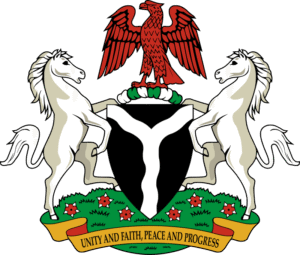
The same opportunity now stands before Nigeria — Africa’s largest economy and home to over 100 million Muslims, along with a fast-growing non-Muslim population increasingly drawn to Halal-certified foods and ethical products for their quality and safety.
Nigeria’s Strategic Entry
The Tinubu administration’s Halal Economy initiative offers a bold pathway to expand non-oil exports, create jobs, and attract ethical global investors. Coordinated through agencies like NAFDAC, NESREA, the Standards Organisation of Nigeria (SON), and the Nigerian Export Promotion Council (NEPC), the strategy aims to standardize Halal certification, strengthen traceability, and open new export corridors to Asia, the Middle East, and Europe.

Key opportunities lie in:
Halal Food & Agriculture — livestock, poultry, beverages, spices, and processed foods.
Pharmaceuticals & Healthcare — Halal-certified drugs, nutraceuticals, and organic cosmetics.
Finance & Logistics — Islamic banking, insurance, and Halal-compliant export supply chains.
Tourism & Hospitality — Halal-friendly hotels, airlines, and medical tourism services.
For ordinary Nigerians, the potential impact is direct and practical: higher farm incomes, new agro-processing plants, cleaner and traceable food systems, and thousands of jobs in certification, logistics, and export management.
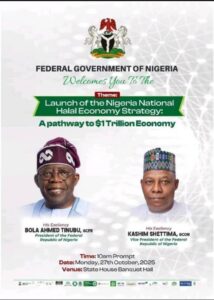
Halal and the GMO Debate: A Path to Safer, More Ethical Food
One of the growing global concerns around food production today is the rise of genetically modified organisms (GMOs). While GMOs were introduced to boost yield and resist pests, they’ve triggered public anxiety over long-term health risks and environmental harm. For Nigerians — especially farmers and families worried about food safety — the question is urgent: Can the Halal economy offer a healthier, more transparent alternative?
The answer is yes — if properly implemented.
Halal certification doesn’t automatically mean non-GMO, but it does impose far higher standards of purity, traceability, and natural balance. Halal rules forbid anything harmful (haram), and require that all sources be ethically and naturally permissible.
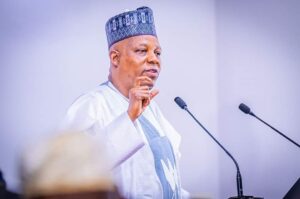
If a GMO involves forbidden genetic material (like from pigs) or lacks proven safety, Halal authorities reject it outright. This sets a tougher ethical bar than standard food regulations. Countries like Malaysia and Indonesia already require full GMO disclosure and prioritize natural, organic, and pesticide-free production in Halal certification.
For Nigeria, this could redefine food confidence. A national Halal certification system under NAFDAC, NESREA, and SON could ensure that all Halal products are scientifically verified, ethically sourced, and transparently labeled — protecting consumers while opening high-value export markets in regions that demand non-GMO Halal foods.
Simply put, Halal could become Nigeria’s seal of food integrity — a trust mark uniting health, ethics, and trade competitiveness.
Global Lessons Nigeria Can Learn
1. Malaysia built the world’s most trusted Halal ecosystem through its JAKIM certification, combining religious law with modern science and biotechnology. The result: a multi-billion-dollar export industry.
2. Indonesia launched its Halal Product Assurance Agency (BPJPH) in 2019, integrating Halal into industrial policy and SME development.
3. Saudi Arabia and the UAE made Halal certification a national brand — central to tourism, logistics, and food safety strategies.
All three nations show that Halal is not about religion — it’s about trust, quality, and economic leadership.
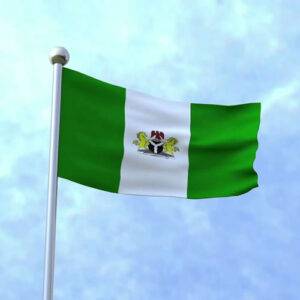
Nigeria’s Unique Advantage
Nigeria has something these economies had to build from scratch:
A massive domestic market that can sustain Halal products before export.
Existing Islamic finance infrastructure, including Jaiz Bank, TAJ Bank, and Islamic insurance (Takaful).
Abundant raw materials — from beef and poultry to shea butter, cocoa, cassava, and spices — all of which can be processed and branded for the Halal export chain.
By integrating Halal standards across agriculture, processing, logistics, and finance, Nigeria can create millions of jobs, boost SME competitiveness, and become West Africa’s Halal trade hub.
Not Religion — Reform and Opportunity
The key to public acceptance lies in communication.
This is not a faith-exclusive project; it’s a national economic development strategy that benefits all Nigerians — Christian, Muslim, or traditional.
Halal certification is about ethical trade, quality assurance, and consumer trust, similar to “Organic” or “Fair Trade” labeling in Western economies.

The global Halal market is inclusive — many top Halal exporters, such as Brazil, Thailand, and Australia, are not Muslim-majority countries. They simply recognized the value of producing ethically and transparently for a massive international market.
Another Milestone for Economic Renewal
For the Tinubu administration, the National Halal Economy Strategy could become a landmark achievement — aligning with Nigeria’s climate, trade, and food security goals.
It supports the Renewed Hope Agenda by diversifying exports, empowering rural communities, and attracting ethical foreign direct investment.
If implemented with transparency and strong regulation, it will help Nigeria reclaim leadership in Africa’s sustainable food and trade economy — a trillion-dollar opportunity rooted in trust and integrity.

In essence:
Halal is not just about what people eat — it’s about how nations trade, how farmers grow, how investors trust, and how societies prosper.
For Nigeria, embracing the Halal economy is not merely a matter of faith — it’s a matter of future.
Princess Gloria Adebajo-Fraser MFR.
The National Patriots.
Public Analyst.




